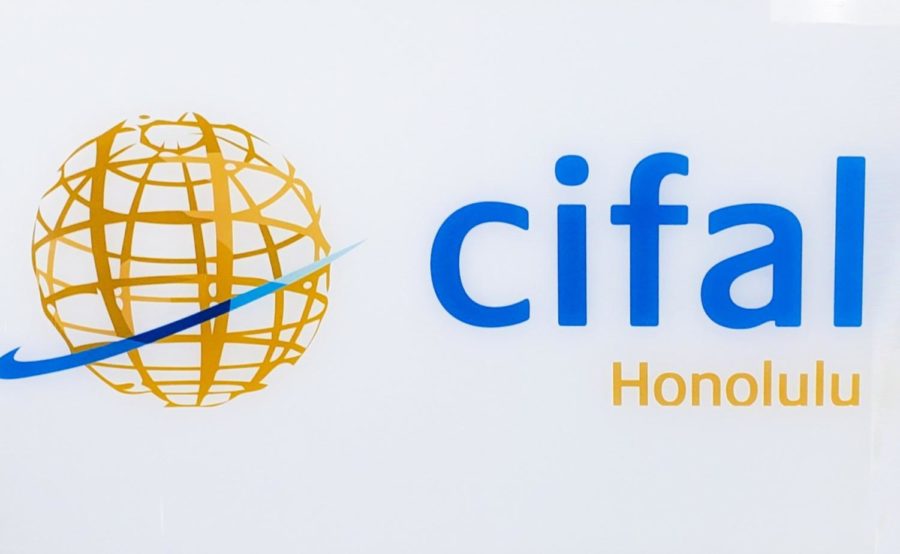UN Center at CUH Helps Communities in the Pacific
Chaminade University is home to the forefront of operations for the United Nations training in the Pacific, this training uses methods that bridge communities in the Pacific to overcome challenges they face.
Chaminade opened the CIFAL (a French acronym for International Training Centers for Local Authorities and Local Actors) Honolulu Center in February. This center trains individuals dedicated to helping accomplish the United Nations’ sustainable development goals in the Pacific. These goals were created as a call to action to address 17 global issues and take the initiative to have them completed by 2030. Some of the goals include no poverty, equity, clean water initiatives, and climate action.
The CIFAL Honolulu Center is one of 25 CIFAL centers around the world. However, this center plays a large role, as it is the center responsible for the Pacific. This center addresses the issues of countries and communities across the Pacific by asking and assessing the concerns communities face regarding the sustainable development goals. One of the methods that the CIFAL center hopes to focus on is creating a web of resources across the Pacific where nations have access to each other’s methods of addressing challenges to implement in their communities.
Upcoming events for the center include a United Nations day event for students held on Nov. 2, when there will be interactive workshops for students to learn about the sustainable development goals. The center will also be hosting the CIFAL Global Network annual meeting in November, where representatives from each CIFAL Center worldwide will come together to discuss their plans and goals going forward.
Chaminade’s dean of Natural Science and Mathematics, Dr. Gail Gabrowsky, is the executive director of the CIFAL Honolulu Center. She believes that direct open dialogue and projects, even on a small scale, that express the primary concerns of each community, are pivotal to the missions success.
“You know, it all starts within the community, and they notice,” Gabrowsky said. “They’re the ones noticing that their house is falling in the water or that there’s no more fish, or that it’s hard to gather for the Merrie Monarch anymore; the ohia are dying. Or that women aren’t paid equally. So the awareness can happen at that level. The people will make change.”
One of the center’s goals is to create internet infrastructure in the Pacific using funds from a $10 million grant it received to help build this web of resources. By creating strong internet connection, communities across the ocean can easily communicate with each other and share their knowledge.
Rhea Jose, a Chaminade class of 2017 graduate, is the outreach coordinator of the CIFAL Center. She appreciates the center’s mission to help indigenous communities and bring knowledge to those communities in the Pacific such as Palau and Guam, where she’s from.
“The impact that I want the center to have is to establish a foundation of knowledge pertaining to the different goals because I talk to a lot of people, and they’re not even aware of the goals that the United Nations has established,” Jose said. “… I think it’s impactful for the CIFAL Center because we’re the first in the Pacific, and we’re able to kind of curate the values and beliefs of all the Pacific islands and kind of push for sustainability in their way.”
Another approach of education through these methods is being spearheaded by Chaminade’s provost, Dr. Lance Askildson. He is the chairman of the center and is writing a book on a collection of stories detailing the successful results of methods used in the Pacific, much like the ones the CIFAL Center aims to strengthen.
To learn more about the Honolulu CIFAL Center, contact Rhea Jose, the center’s outreach coordinator, at [email protected].
